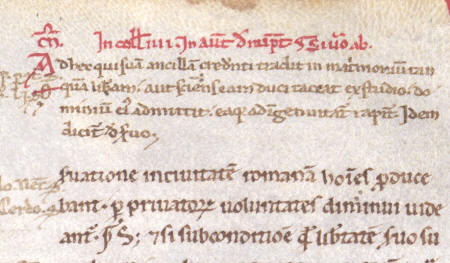The Evolution of the Ius commune
Cambridge, Mass. Harvard Law Library
63, fol. 3v
Justinian, Codex 1.1.1
Justinian's Corpus iuris civilis: Digest, Codex, Institutes, Novellae (Authenticum) (=Authenticae, inserted into Codex)
Codex Florentinus Firenze, Laurenziana, sine numero
Digestum vetus Dig. 1.1-24.2
Infortiatum Dig. 24.3-38.17
Digestum novum Dig. 39.1-50.17
Codex 1-9 and Tres libri 10-12 (Libri terribiles)
Epitome Iuliani
Authenticum (97 Novellae from 168) 9 + 3 = 12 Collationes
Pepo (1075)
Irnerius (†
ca. 1125)
The Four Doctors of Roman Law:
Bulgarus (ca. 1130-1160),
Martinus (ca. 1150-1160), Jacobus
(ca. 1150-1169), and Hugo
(ca. 1144-1166)
Placentinus
† ca. 1192,
Azo †
ca. 1220
Accursius (Ordinary Gloss to the Corpus iuris
civilis)
